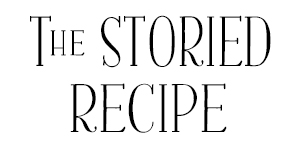Have you ever thought about the stories right there in your own neighborhood, on your own street, in the homes up and down the block where you live? Where Marina was raised, there were Koreans, Germans, Russians, Ukrainians, Persians, and the indigenous people as well - not Native Americans, because Marina wasn't raised in America. Instead, she was raised in Kazakhstan, a huge Asian country where the native Kazakhs lived as nomads (even, in fact, live now as Nomads) until communist nations - like the Soviet Union and Korea - began to send people there in the 1920s and '30s. Unlike the United States, where many immigrants over the last 400 years came by choice (obviously, with very notable and shameful exceptions), very few arrived in Kazakhstan by choice.
But… what is choice, really? This is a question Marina had me pondering for days after this interview. In America, we value choice - move to where we want, choose the schools we want to go to, pursue the career we want, make as much money as we want, marry the person we want, etc. Choice, in our minds, is essential to that constitutional right - "the pursuit of happiness". But Marina talks about choice in a different way. Her grandmother, for instance, believed that freedom to choose these forks in the road was overrated, that commitment to community was the higher value, and that the real choice was in choosing to accept what was given, the choice to be happy, content, and hopeful. I'm left wondering - is it really true that "we always have a choice?" - and also, again, what stories were held within the houses on Marina's street, where nearly every family was moved to Kazakhstan by a government?
And finally, what stories would the Kazakh's themselves tell of the people who showed up on their land, what happened to their way of life? Marina shares a powerful story about the compassion of native Kazakhs towards prisoners in a gulag… You'll definitely want to hear this one.
But Marina didn't know much about these stories as a child and choice wasn't anything on her mind. What she knew was that her neighbors were her friends, they played happily, and everyone in the neighborhood shared their own cherished recipes, which the parents prepared and ate together, unity among diversity. In fact, Marina's storied recipe doesn't come from her own heritage - it's a Polish cookie called Mazurka, just like the dance. So excited to welcome you into this conversation with Marina, where we dive deep into all of this - and so much more - today. Thanks for joining us.
Highlights
- Where is Kazakhstan
- The indigenous people, the Kazakhs
- The national symbol of Kazakhstan, taken from their iconic yurts
- How the Soviet Union moved Marina's maternal and paternal families to Kazakhstan
- Why Marina's grandmother felt her life was better under the Soviet Union
- World War II, The Soviet Union, and Kazakhstan
- A special yellow dress
- Incredible story of compassion from Kazakhs toward prisoners in a gulag
- All the nations represented on Marina's street and in her family
- All the food influences brought by all these nations
- Foodways in different regions in Kazakhstan (produce in central; meat in the North)
- Muzarka: a special cookie to Marina's family
- How they learned how the microwave works!

Listen to Marina Now
Follow The Storied Recipe in Your Favorite Player
Marina's Storied Recipe: Polish Mazurka (Peanut Rasin Cookies)
The Storied Recipe Needs Your Help!
Please leave a 5-star review for the podcast right here!
This link will give all review options available on your device. Simply choose any option, click, and leave a review. Thank you!
The Storied Recipe Print Shop
Where every print tells a story.
High end prints for your kitchen walls: Download and print immediately.
The Storied Recipe Newsletter
The Storied Recipe is a community that believes food is a universal love language. Join for episode & recipe updates every Friday mornings. (And occasional free gifts!)














Would love to hear from you!